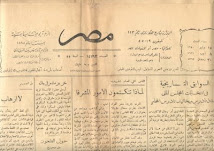Egyptians over 16 must carry ID cards showing religious affiliation. Muslim, Christian and Jew are the only choices.
Human Rights Watch says the requirement particularly hits members of the small Bahai community, and Coptic Christians who became Muslims but want to go back.
It says there are about 200 such people who converted for reasons like divorce.
The BBC's Heba Saleh in Cairo says that without the all-important IDs, members of minorities face enormous problems in education and employment.
Ministry of interior officials apparently believe that they have the right to choose someone's religion
Joe Stork, Human Rights WatchHuman Rights Watch (HRW) also highlights the plight of other Egyptians who complain that they have been designated as Muslims against their will.
These are mostly members of Christian families whose fathers converted to Islam and left them.
When the children get their ID cards they find they have been listed as Muslims whether they like it or not.
'Arbitrary refusal'
The report is jointly issued by HRW and the Egyptian Initiative for Personal Rights.
"Ministry of interior officials apparently believe that they have the right to choose someone's religion when they don't happen to like the religion that person, him or herself, has chosen," said Human Rights Watch's Joe Stork.
"So we are asking the government today to end this arbitrary refusal to recognise someone's actual religious beliefs," he said.
Egypt is a predominantly Sunni Muslim state. Conversions from Islam are viewed as apostasy, although Muslim scholars differ on the what action should be taken.
Egypt's Supreme Administrative Court is shortly to rule on whether seven Christian-to-Muslim converts who converted back can be recognised as Christians.
A ruling is also expected on whether the government must recognise minority Bahais.
هل تؤيد ذكر الديانة في بطاقات الهوية؟
وجهت جماعات لحقوق الانسان في مصر انتقادات للسلطات "بسبب إجبارها الأقليات على إنكار دينها في الوثائق الرسمية". ويتوجب على المصريين فوق سن السادسة عشرة حمل وثائق لاثبات الشخصية تبين انتماءهم الديني، ولا تشمل تلك الوثائق سوى خيارات الإسلام أو المسيحية أو اليهودية.من ناحيتها، أصدرت منظمة "هيومان رايتس واتش" تقريرا دافعت فيه عن حقوق الذين كتب في وثائقهم أنهم مسلمون رغم ارادتهم، مثل أبناء عائلات مسيحية تحول آباؤهم الى الاسلام ثم تخلوا عنهم.تقول المنظمة إن في هذا إساءة للطوائف الصغيرة مثل البهائيين والأقباط الذين تحولوا إلى الإسلام ثم رغبوا في العودة إلى دينهم الأصلي، حيث يقول تقرير المنظمة ان هناك حوالي 200 شخصا تحولوا عن دينهم بسبب الطلاق. ويحظر القانون حاليا عليهم تغيير الديانة إلى المسيحية مرة أخرى.هل تعتقد أنه من الضروري ذكر الديانة في بطاقات الهوية؟ وهل وجودها يسبب نوعا من التمييز بين مواطني البلد الواحد؟ أم أن هناك ضرورات تبرر إدراج هذه المعلومة في مثل هذه الوثيقة؟ أرسلوا آراءكم وتجاربكم.
وجهت جماعات لحقوق الانسان في مصر انتقادات للسلطات "بسبب إجبارها الأقليات على إنكار دينها في الوثائق الرسمية". ويتوجب على المصريين فوق سن السادسة عشرة حمل وثائق لاثبات الشخصية تبين انتماءهم الديني، ولا تشمل تلك الوثائق سوى خيارات الإسلام أو المسيحية أو اليهودية.من ناحيتها، أصدرت منظمة "هيومان رايتس واتش" تقريرا دافعت فيه عن حقوق الذين كتب في وثائقهم أنهم مسلمون رغم ارادتهم، مثل أبناء عائلات مسيحية تحول آباؤهم الى الاسلام ثم تخلوا عنهم.تقول المنظمة إن في هذا إساءة للطوائف الصغيرة مثل البهائيين والأقباط الذين تحولوا إلى الإسلام ثم رغبوا في العودة إلى دينهم الأصلي، حيث يقول تقرير المنظمة ان هناك حوالي 200 شخصا تحولوا عن دينهم بسبب الطلاق. ويحظر القانون حاليا عليهم تغيير الديانة إلى المسيحية مرة أخرى.هل تعتقد أنه من الضروري ذكر الديانة في بطاقات الهوية؟ وهل وجودها يسبب نوعا من التمييز بين مواطني البلد الواحد؟ أم أن هناك ضرورات تبرر إدراج هذه المعلومة في مثل هذه الوثيقة؟ أرسلوا آراءكم وتجاربكم.












No comments:
Post a Comment